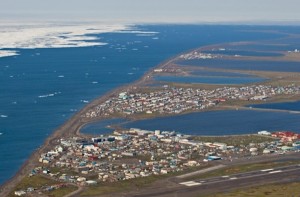
A handful of research and conservation groups received a grant this month that will fund a program aimed at engaging students in western and northern villages in real-world problem solving. The two-year grant will train teachers to integrate climate change adaption, oil spill response and several other hazards facing their communities into their classroom.
The Center for Alaskan Coastal Studies is based in Homer and is one of five conservation and research groups that will take part in CoastWatch for Action. CoastWatch obtained about $200,000 in funding earlier this month from the Gulf Research Program.
Millions of dollars in capacity-building grants are awarded annually, funded by settlements with oil companies BP and Transocean.
Center for Alaskan Coastal Studies Executive Director Elizabeth Trowbridge explained that all five groups have wanted to work together for several years. She hopes to begin September.
“The first year is really dedicated solely to planning. We’ll first initially be getting our organizations together and just figuring out what resources we have collectively that address issues like coastal erosion hazards, oil spills, things like that,” Trowbridge explained. “Then we’ll be working on solidifying our connections in the rural communities we’d like to take our programs out to.”
The program aims to address community-specific issues. Trowbridge said they’re still deciding which six communities they will be working in, so she doesn’t know exactly what students will be learning just yet. But, CoastWatch does intend to bring the program to the North Slope Borough School District.
University of Alaska Fairbanks Professor Marilyn Sigman has been working with district for about six years helping them design a place-based science curriculum. Sigman teaches in the school of Fisheries and Ocean Sciences, but will be working as Alaska Sea Grant’s Marine Education Specialist to design lesson plans specifically about coastal erosion.
“Were also trying to have the students understand that we having a changing environment,” Sigman said. “If they want to stay there, make a living there, they need to start becoming engaged with the community’s response to climate change and these types of issues.”
CoastWatch also hopes to provide opportunities outside of the classroom. It will serve as a recruitment tool for other opportunities such as a summer camp for teens focused on environmental response. This summer, students in the North Slope Borough sponsored program will observe an oil spill response drill.
“Students can’t totally get engaged in responding to an oil spill just because it is very hazardous and you need very specialized training,” Sigman noted. “But, they can be engaged in if there were an oil spill, what would happen and also begin to be trained and see that career path.”
Sigman added they will work to provide similar opportunities in the other five communities.
After all the towns and villages are selected, members from participating organizations will fly into each in fall of 2018 to train teachers. Progress will be followed up remotely.




